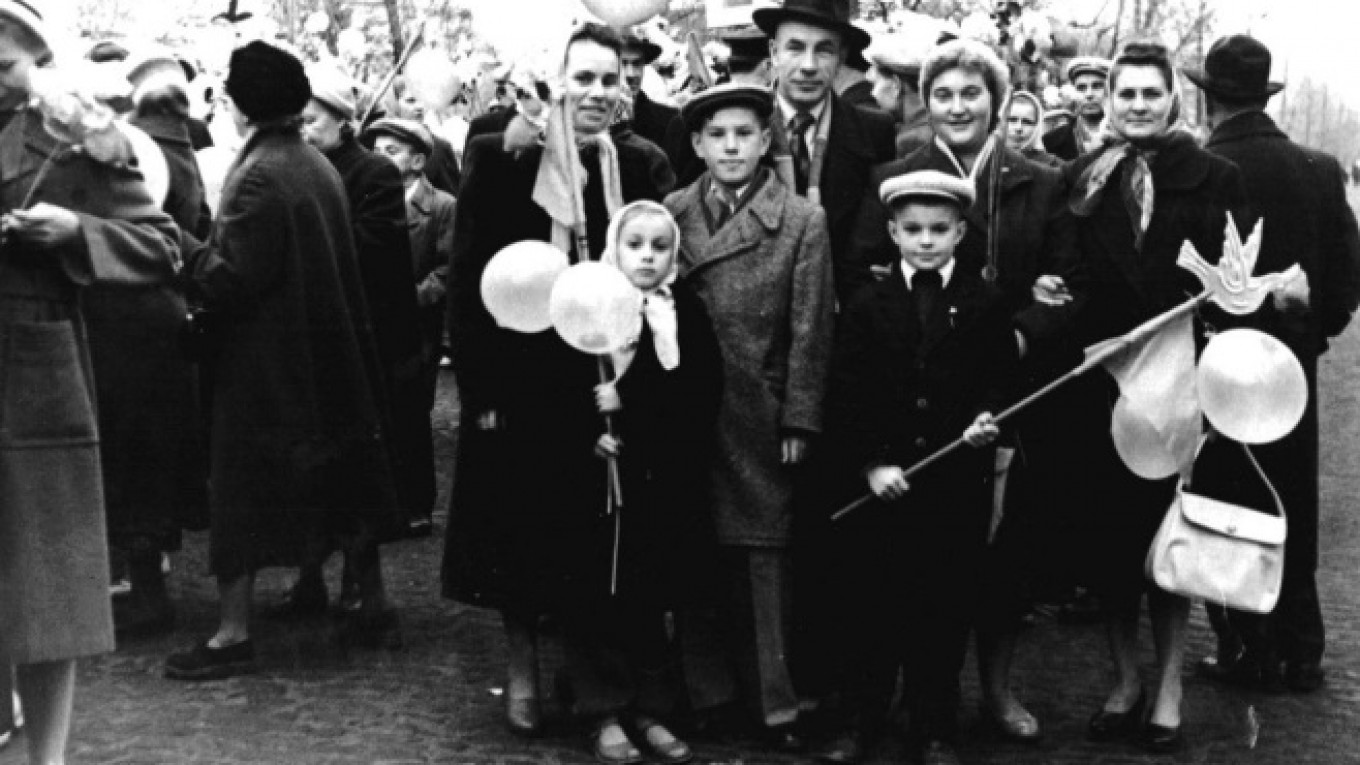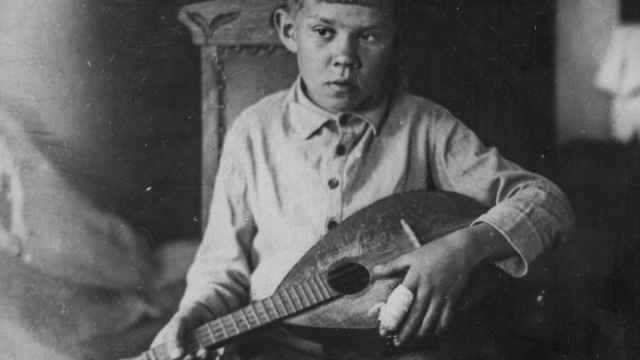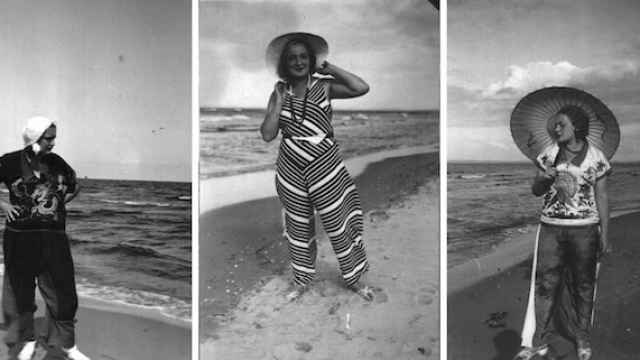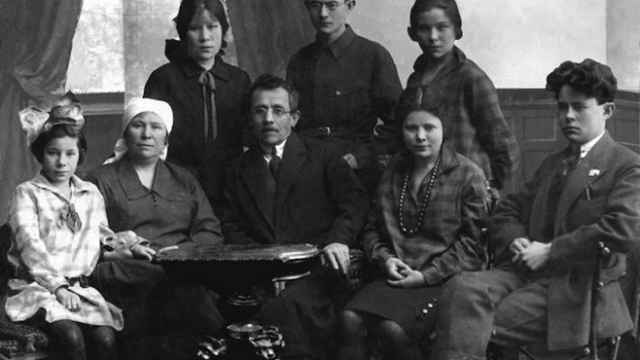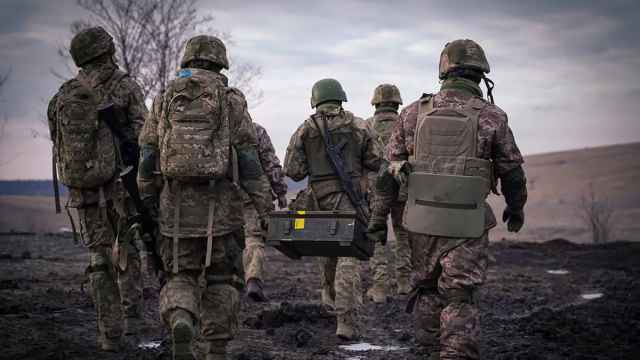In Ukraine, whose tumultuous 20th-century history has spilled over into a bloody battle for its 21st-century identity, every picture tells a story.
Daisy Sindelar traveled to six Ukrainian cities to talk to people about what their old family photographs say to them about who they, and their country, are today. This week, Volodymyr Ogloblyn, 60, a photographer, tells his family's story from Kharkiv.
This article was first published by Radio Free Europe / Radio Liberty as part of the My Ukraine project.
I was a Little Octobrist, a Young Pioneer, a Komsomolets, the whole deal. But I never got into the Communist Party. I was the type of person who asked too many questions. It didn't kill me professionally, but it did make things a little bit harder.
Technically, I'm Russian. My parents were Russian and I've spent a lot of time there. But I've lived in Kharkiv since I was small and this is my city. Ukraine is my country. It's never been otherwise.
I was raised by a single mother. She worked for the post office. My father was in the army and then just kind of drifted off. He ended up marrying another woman with the same name and patronymic as my mother. Maybe it made things easier for him — less to remember.
We went out to the square for all the Soviet holidays. No matter what. You had to, otherwise someone would call the police.
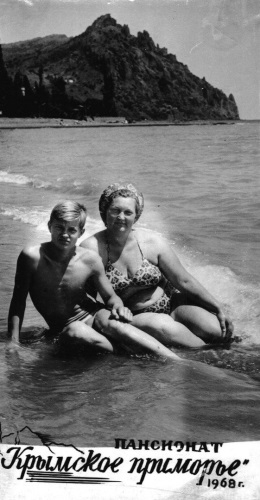
Volodymyr with his mother, Crimea 1968.
When I was about 14, my mother and I went to Crimea for the first time. It was the first time I had seen the sea, and it was amazing.
What Putin did in Crimea is no different than taking someone's wallet. He stole Crimea from us.
I spent a lot of time doing sports growing up, mainly cycling and running. Eventually that gave way to studying. A lot of my pictures from that time are fairly idiotic.
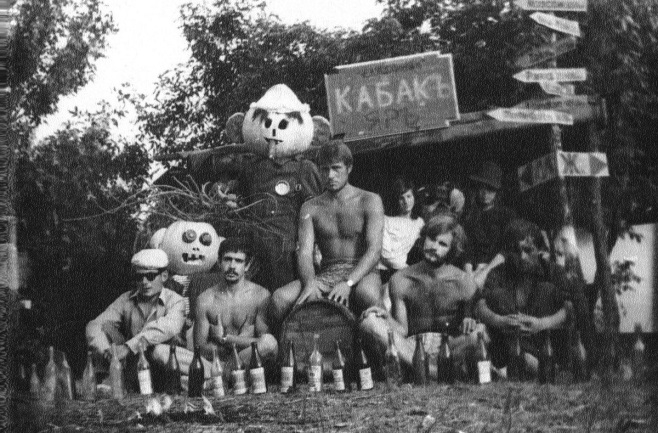
Archaeological expedition, Dnipropetrovsk Oblast, 1972.
I've backpacked through Kazakhstan and other parts of Central Asia. And I've been on dozens of trips to Russia.
In 2001, I accompanied a group of Russian explorers to the Arctic. The trip was led by Vladimir Chukov, a very well-known polar explorer.
We spent two months in the Franz Josef Land archipelago, hiking from one island to another over the ice. I was the only Ukrainian in the bunch, and the only photographer.
Being Ukrainian was fine, but being the photographer was a nightmare. It was minus 57 Celsius and none of my cameras worked. I ended up having to fall back on an old mechanical film camera. It was the only one that didn't freeze up.
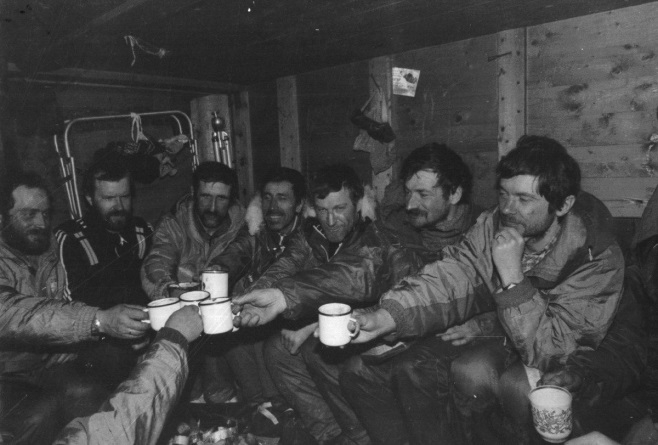
Volodymyr and Vladimir Chukov (second and third from left).
The team was 17 kilometers from the starting point and about to make their first venture onto the ice.
We had to carry carbines because of the polar bears. At some point a bear stole my backpack, but I got it back.
I usually travel with a gun, because I spend a lot of time in remote areas with wolves or bears. That's something that's gotten harder in recent years, traveling to Russia and trying to explain what you, a Ukrainian, are doing there with a gun.
There are an amazing number of abandoned planes all over Franz Josef Land.
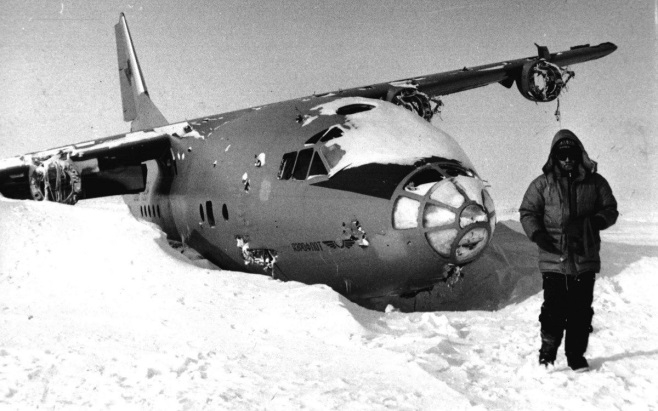
Volodymyr in Franz Josef Land, 2001.
Most recently I've traveled to the Far East and Magadan to work on travel books. Ukraine is beautiful, but of course it doesn't have the geographical range that Russia does. I've been to some incredible places in Russia.
I've worked for years with Russian publishers, but it's not clear those relationships are going to continue. It's tough to have a normal conversation with Russians these days.
For one thing, they're blind to what's going on in Ukraine. And for another, they can't bear the thought of Ukrainians living better than they do. They think that if they live badly, everyone else should, too. And they can't stand the fact that Ukrainians on the Maidan were ready to die for their country.
We are spiritually free. And they aren't.
They love to say Russia is a great country. I always tell them it's not great — it's just big.
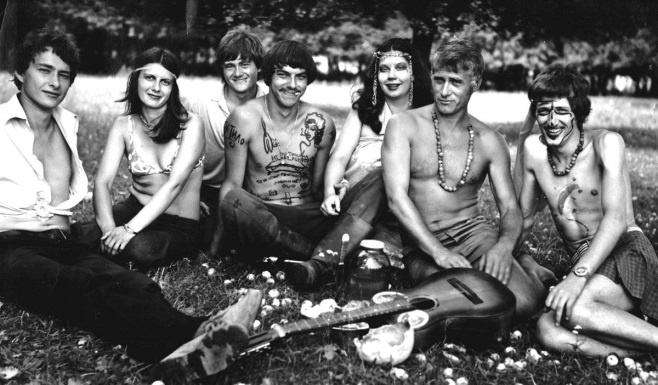
School trip, Dnipropetrovsk, 1972.
We got Yanukovych out. Now we just need time to help the country grow — 10, 20, 30 years.
Ukraine has everything it takes to be a great country. There's fertile land, great tank and navigation technology, great institutes for physics and chemistry.
We need time and money. But all the money we could be investing in Ukraine, in our country, is just being spent on this bulls--t war that we were absolutely not ready for.
The hospitals in Kharkiv are full of wounded soldiers — from both sides, by the way. I collect clothes for some of these guys. They literally have nothing, these boys. People donate money to pay for their operations and artificial limbs.
Just let this war be over. We've got a lot of work to do!
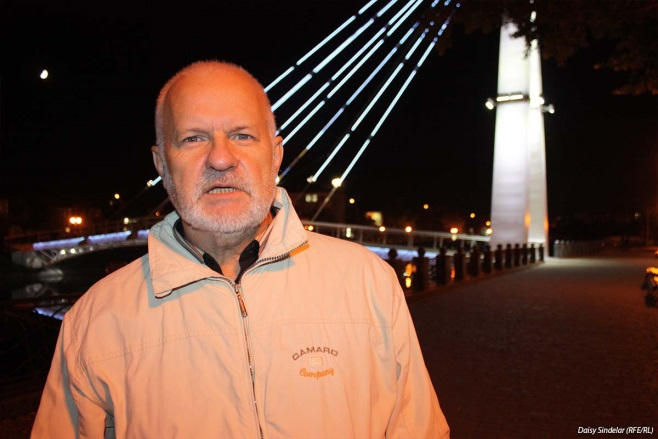
Volodymyr Ogloblyn
A Message from The Moscow Times:
Dear readers,
We are facing unprecedented challenges. Russia's Prosecutor General's Office has designated The Moscow Times as an "undesirable" organization, criminalizing our work and putting our staff at risk of prosecution. This follows our earlier unjust labeling as a "foreign agent."
These actions are direct attempts to silence independent journalism in Russia. The authorities claim our work "discredits the decisions of the Russian leadership." We see things differently: we strive to provide accurate, unbiased reporting on Russia.
We, the journalists of The Moscow Times, refuse to be silenced. But to continue our work, we need your help.
Your support, no matter how small, makes a world of difference. If you can, please support us monthly starting from just $2. It's quick to set up, and every contribution makes a significant impact.
By supporting The Moscow Times, you're defending open, independent journalism in the face of repression. Thank you for standing with us.
Remind me later.


